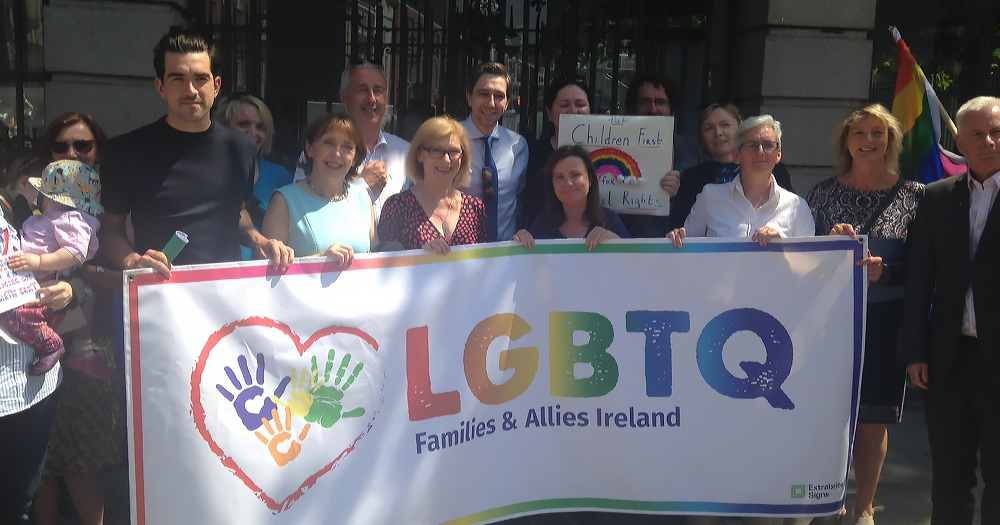Amendments To Parts 2 & 3 Of Children and Family Act Welcomed But There's Still Work To Do
The amendments come over three years after the Marriage Equality Bill was passed. Although these amendments have been welcomed, they don't go far enough for many same-sex families.
Minister Harris hopes to be in a position to commence Parts 2 & 3 of the Children and Family Relationships Act in the autumn
The Minister for Health Simon Harris has welcomed the Government’s decision yesterday (Thursday 5 July) to approve the publication of the Children and Family Relationships (Amendment) Bill 2018 and enable the Bill’s introduction in the Oireachtas next week.
The specific purpose of this Amendment Bill is to correct a typographical and technical error in the Children and Family Relationships Act 2015, which will facilitate the subsequent commencement of Parts 2 & 3 of that Act.
The Children and Family Relationships Act 2015 was enacted to modernise family law in a way that is inclusive of and sensitive to the reality of contemporary family life in Ireland and to meet the needs of children living in diverse family types.
Parts 2 & 3 of the Act, which is the responsibility of the Minister for Health, are key elements of the Act and are concerned with the rights of children conceived through the use of donor embryos or gametes.
These rights are provided for in Parts 2 & 3 of the Act by:
- clarifying the legal parentage of donor-conceived children;
- ensuring that all parties to a donor-assisted human reproduction procedure have provided their
- consent and are aware of their rights and responsibilities;
- and by vindicating the donor-conceived child’s right in accordance with the UN Convention on the Rights of the Child to know his or her genetic identity.
The vindication of this right will be achieved through the prohibition of non-anonymous gamete and embryo donation and by the establishment of a National Donor-Conceived Person Register.
The Register will enable a donor-conceived child who has reached the age of 18 to access personal “identifying” information on the relevant donor and any genetic donor-conceived siblings s/he may have and, if s/he so wishes, to seek to contact those individuals.
“The technology of assisted human reproduction has created a new reality and Irish law must adapt to reflect these changes. Parts 2 & 3 of the Children and Family Relationships Act 2015 bring much-needed clarity in this area and seek to vindicate the rights of the most vulnerable individuals in a donor-assisted human reproduction procedure, the children.” Minister Harris said.
Surrogacy Bill Timeline Needed
The Children and Family Relationships Act specifically relates to procedures where the intending mother is also the birth mother. As such this Act does not encompass surrogacy.
These amendments are applicable to donor-assisted human reproduction and as such only pertain to the person who gives birth to the child and their partner. A separate Assisted Human Reproduction Bill will encompass surrogacy.
Officials in the Department of Health are engaging with the Office of the Attorney General in relation to the process of drafting this Bill.
The General Scheme is published on Department of Health’s website and the Joint Committee on Health is currently conducting a review of the General Scheme of the Assisted Human Reproduction Bill 2017 as part of the pre-legislative scrutiny process, which began in January of this year.
© 2018 GCN (Gay Community News). All rights reserved.
Hey there!
Enjoying GCN?
You have read all free 5 articles on GCN this month.
If you are enjoying GCN, how about sign up for free to access all articles? You can also log in from here if you already have an account.
